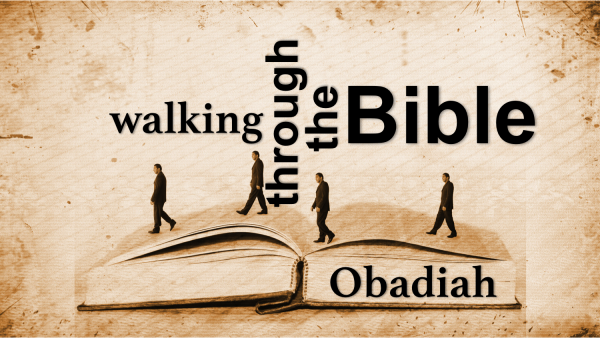Edom, as a nation, had a very troubled history. Her root was entrenched all the way back in Genesis 25 when her father, Esau, set himself at odds with Jacob by despising his birthright for a mere bowl of red pottage. Then the axe was laid to the root even more when Jacob deceitfully stole his elder brother’s blessing from their father Isaac with nothing left for Esau but the promise that, “…by thy sword shalt thou live, and shalt serve thy brother; and it shall come to pass when thou shalt have the dominion, that thou shalt break his yoke from off thy neck” (Genesis 27:40). From that point on, the descendants of Esau (the Edomites) were continually a thorn in the side of Israel (Jacob’s descendants) and would be for centuries to come.
As Esau departed company from his family, only reuniting with Jacob once more in his life (Genesis 33) he settled in Seir, in the southeast corner of the Palestinian valley. It is there that years later Israel, upon seeking to cross over into Canaan, met refusal from their brethren, the Edomites, to cross through their land, instead having to take a much longer journey around them (Numbers 20). Needless to say, the relationship between these very distant cousins was strained, resulting in conflicts throughout their histories. Ezekiel included Edom (referred to as mount Seir) in his judgments against foreign nations, and stated regarding their conflict with Israel, “Because thou hast had a perpetual hatred, and hast shed the blood of the children of Israel by the force of the sword in the time of their calamity, in the time that their iniquity had an end…” (Ezekiel 35:5). Also Amos made mention of the manifold harm Edom committed toward Israel by saying, “Thus saith the Lord; For three transgressions of Edom, and for four, I will not turn away the punishment thereof; because he did pursue his brother with the sword, and did cast off all pity, and his anger did tear perpetually, and he kept his wrath for ever…” (Amos 1:11). Because of this vicious and unjust treatment of Israel over the years, God targeted Edom with His wrath and vowed vengeance upon them on His people’s behalf.
Not only did Ezekiel and Amos prophesy of Edom’s coming destruction, but Isaiah and Jeremiah set their prophetic sights on them as well. God promised, similarly as through Ezekiel and Amos, “For my sword shall be bathed in heaven: behold, it shall come down upon Idumea (Edom—AJB) , and upon the people of my curse, to judgment” (Isaiah 34:5) and “Also Edom shall be a desolation: every one that goeth by it shall be astonished, and shall hiss at all the plagues thereof” (Jeremiah 49:7). Thus because Edom is so predominantly mentioned in prophecy, more so that any other foreign nation, it appears that their actions were the most troubling to God and counterproductive to His plan.
Obadiah’s book of prophecy is the last and most concentrated effort to warn the Edomites of their bleak future as result of their sins. Obadiah wrote and worked shortly after the Babylonian siege of Jerusalem, of which Edom was a part. They cheered Nebuchadnezzar for his actions against the Jews and in the end cried out regarding what would come of the city, “Rase it, rase it, even to the foundation thereof” (Psalm 137:7). It was but four years later, in 582 B.C. that Obadiah’s words would be proven true. He warned them that they would be cut off forever and be as though they had never been (Obadiah 18). Dunn said of what came
“…Edom was rased and desolated by the Babylonians, the same nation that had taken Judah captive. A few Edomites were left in South Judea, where for four centuries they continued as enemies of the Jews. In 126 B.C., they were subdued by the Maccabean rulers and absorbed by the Jewish state. When the Romans conquered Palestine (63 B.C.), they placed the Herods, an Edmomite (Idumean) family, over Judah. With the destruction of Jerusalem (A.D. 70), the Edomites disappeared from history.”
It is Edom’s result that pictures Christ as the Judge of the nations (vs. 15-16), the Savior of Israel (vs. 17-20), and the Possessor of the kingdom (vs. 21). In the end, the kingdom would be the Lord’s (Obadiah 21). This has and always will be true. The true kingdom is still the Lord’s regardless of what man may attempt to do to it. Edom paid dearly for not respecting that. How long will it take modern man to learn the same?

